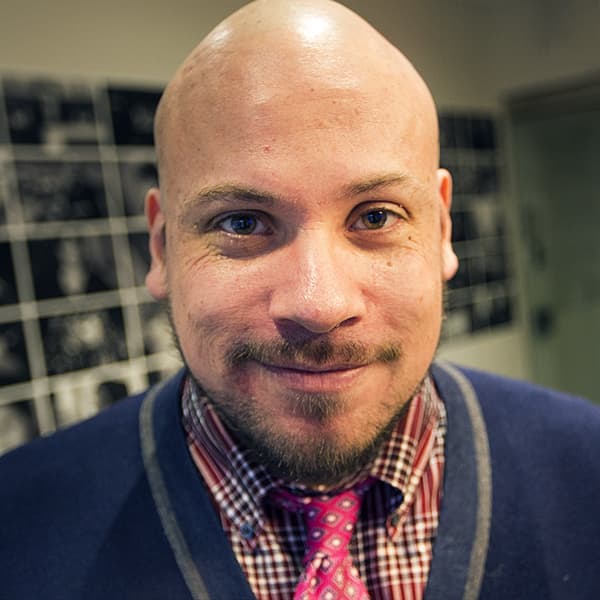Advertisement
At Boston University, Aspiring Playwrights Don't Just Sit Offstage
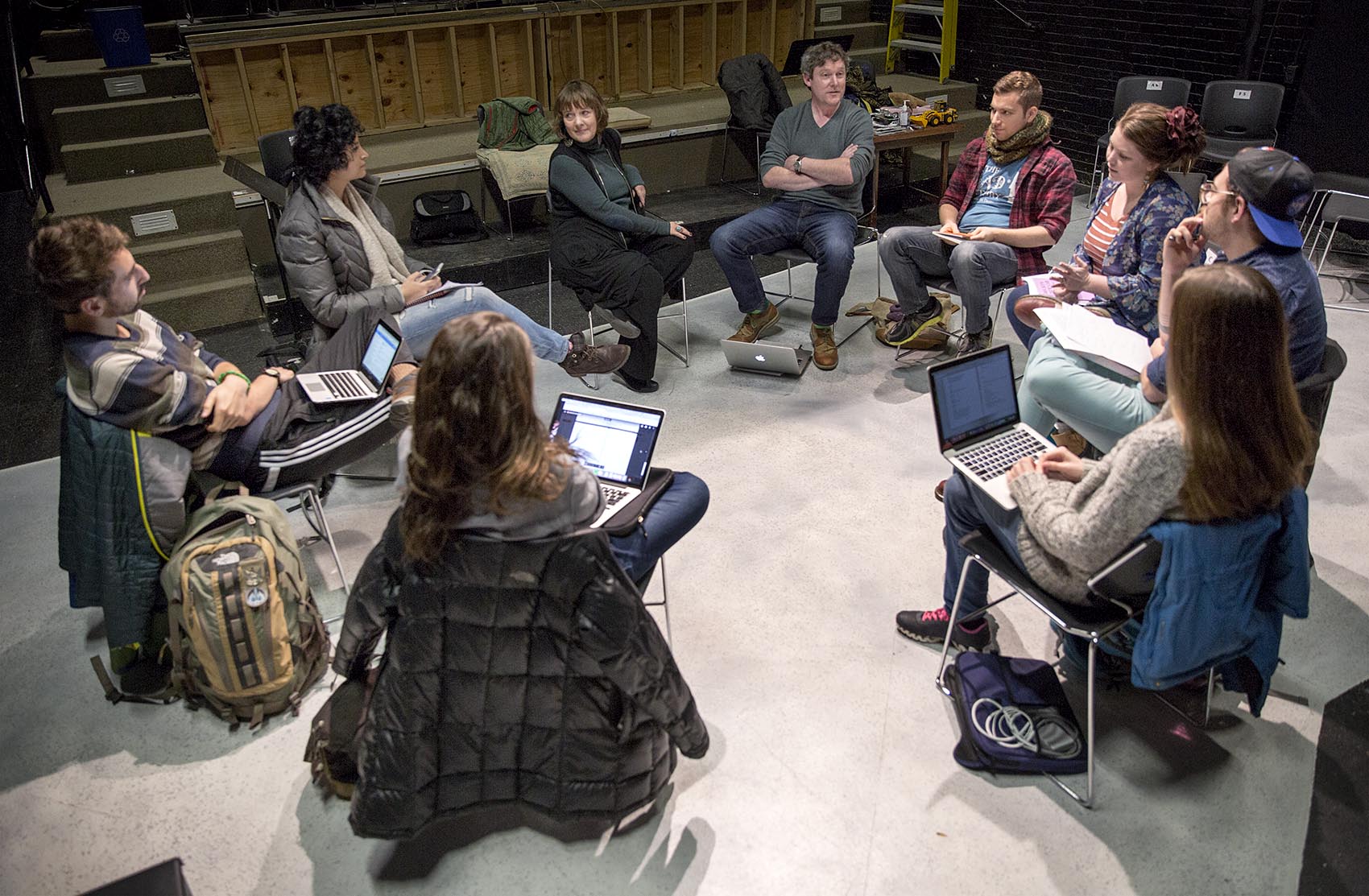
Boston Playwrights' Theatre has long been the place to catch new plays by alumni and faculty of Boston University’s much-vaunted Master of Fine Arts program for playwriting.
Many familiar names on the Boston theater scene have used it as a lab for their latest work — among them Melinda Lopez (whose latest play "Mala" recently garnered raves in an ArtsEmerson production), John Kuntz and Ronan Noone.
But its emphasis is swinging from distinguished alumni to not-yet-alumni who are still working to make their names in the professional theater world. BU’s several theater-related entities are re-focusing their efforts to enhance the working relationship among aspiring playwrights and other theater students, creating a vibrant pipeline for new plays to go from page to stage.
This season, for the first time, the Boston Playwrights’ Theatre is acting as a showcase for pieces written by graduating students in BU’s MFA playwriting program and for the increasingly collaborative process leading up to the production. (A play by Noone, who is an alumnus and also an instructor, sits on the schedule alongside five new works by MFA candidates.)
In a major change, almost all of the onstage and backstage talent will be provided by students in BU’s theater school, who work closely with the playwrights throughout the year. In alternating seasons, Boston Playwrights’ Theatre will resume its practice of featuring only three plays, written by alumni or faculty of the program and employing professional actors, designers and playwrights to stage them.
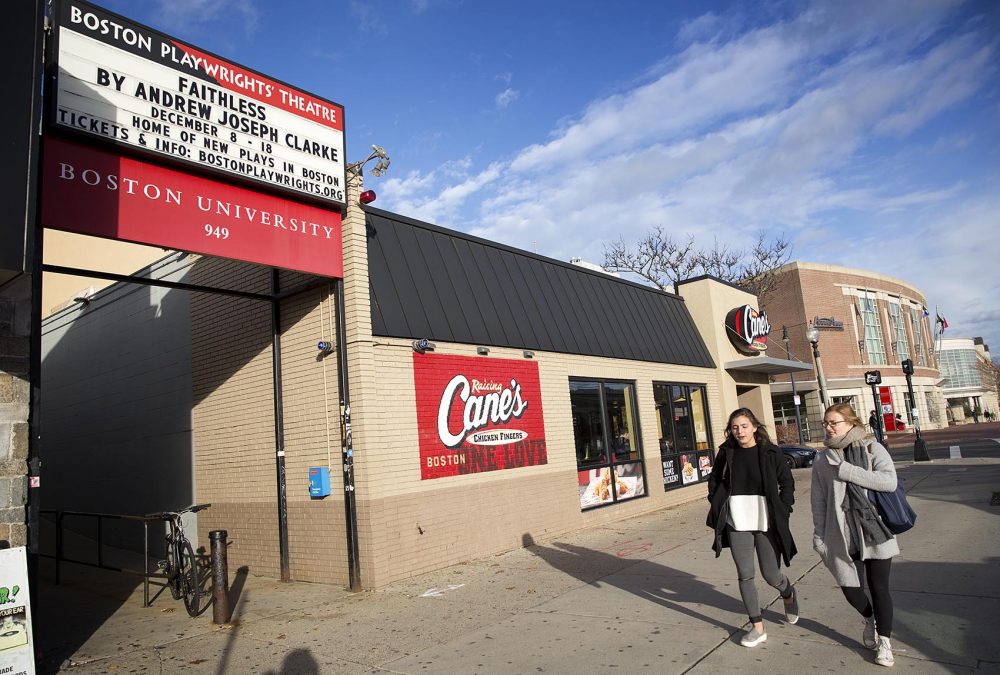
On a recent afternoon, BU's playwriting program director Kate Snodgrass let me sit in on a writing workshop she was leading inside the Boston Playwrights’ Theatre — which is located in an inconspicuous building on Commonwealth Avenue tucked away next to Paradise Rock Club.
MFA playwriting candidates sat alongside other students on chairs aligned in a circle onstage in front of the set for fellow student Livian Yeh’s "Memorial," which had finished its season-opening run in the space a few days prior.
The agenda that day included readings of short plays each student had written for an assignment. By design, the pieces were brief and raw, but each served as ample fodder for thoughtful discussions about the nuts and bolts of making a play work onstage.
Some of these students will see one of their own plays produced on that very stage two seasons from now. Others will design the sets, act or direct. But no one pulled rank when it came to writing chops; it wasn’t at all clear who was aiming to do what.
Advertisement
And that was exactly the point.
This new arrangement is part of a broader movement in the theater world toward integrating playwrights more closely into the organizations that produce their work, and away from the old model of leaving writers to largely work in isolation until the time comes to stage a specific production.
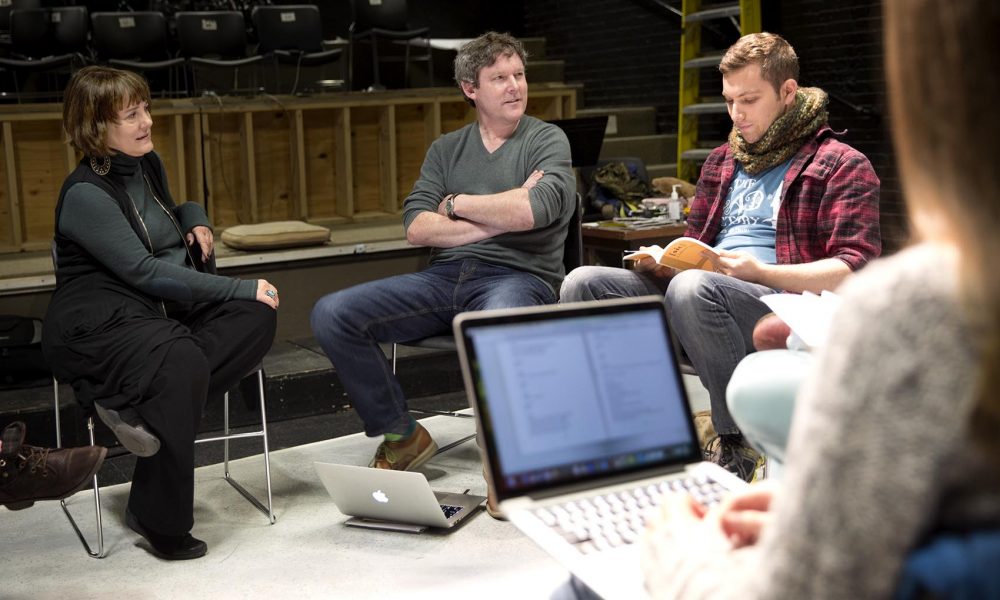
A series of grants by the Andrew W. Mellon Foundation has installed two playwrights (each with ties to BU’s MFA program, as it happens) as full-time playwrights-in-residence at local theaters: Lopez at Huntington Theatre Company and Kirsten Greenidge, a faculty member in the MFA program, at Company One. The grants, administered by ArtsEmerson’s HowlRound, support similar arrangements at 16 other theaters around the country.
Since the expansion of BU's playwriting program to three years in 2012, incoming students "are immediately connected to the MFA directors and actors and designers, in class and outside of class and in productions, so once they leave BU these relationships can continue,” said Snodgrass, who, in addition to running the BU program, is the artistic director at the Playwrights' Theatre.
“They don’t even acknowledge what their specialty is,” said Jim Petosa, longtime head of BU’s School of Theatre, of first-year graduate students in the playwriting program. “They come together in teams and work on creating collaborative pieces of theater. They really expand their ability to work with each other, play with each other, and evolve in the group process of making theater. Playwrights being integrated into a theater community helps them imagine more for their plays.”
Advanced students with concentrations in other realms of the theater arts are also welcome in some of the playwriting courses.
The setup is born from a reconfigured relationship among Boston Playwrights’ Theatre, Boston Center for American Performance (headed by Petosa and often featuring collaborations with Watertown’s New Repertory Theatre, where he is artistic director), the school’s existing New Play Initiative and the undergraduate and graduate theater programs.
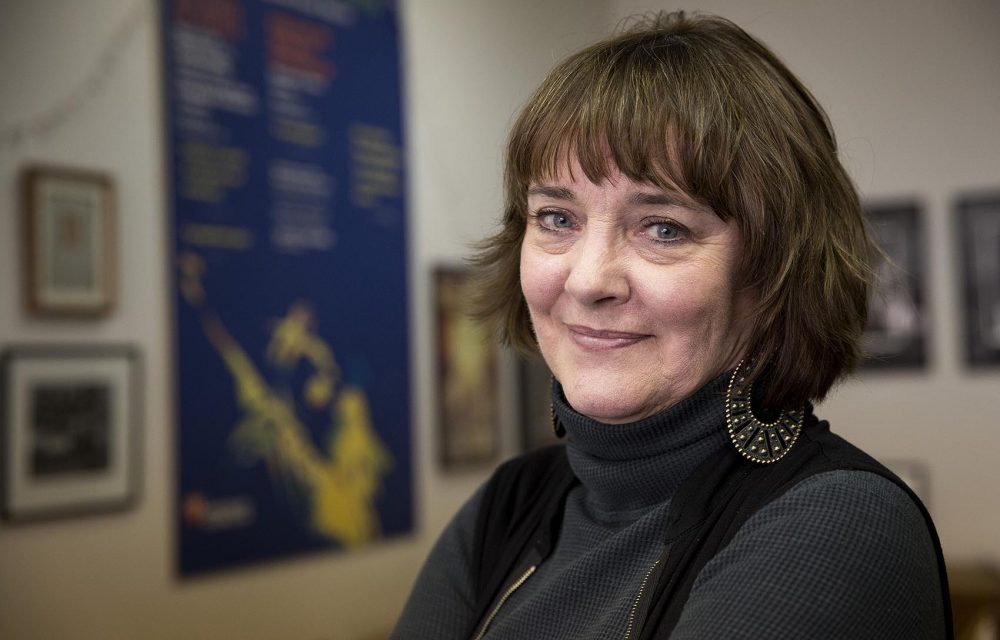
Snodgrass sees the changes as part of the heightened profile of the school’s highly competitive playwriting program, which in the past two years has included students from Iran, Taiwan and Ireland, in addition to aspiring playwrights from across the United States. Students in the program have attended the school tuition-free since 2014. In another pot-sweetener meant to attract top candidates, a stipend first instituted in 2012 has been dramatically increased this year.
At Boston Playwrights’ Theatre, the changes mean an increase in the sheer number of productions mounted there, but a shift away from familiar voices and professional talent. Noone has previously been produced here three times, as has Lopez. Kuntz and Snodgrass have each seen two of their plays staged here. It will also ultimately mean fewer gigs for local theater professionals, though when BU's School of Theatre can't provide appropriate talent for a student-written play — say, one that features elderly characters — professionals from the Boston scene will still be hired.
"I hope that people who are concerned about the state of new playwrights will view this not as something lacking but as something supporting the development of generations of new playwrights," Petosa said. "If we tell the story right, those people who care about creating new plays will find this to be a really stimulating opportunity."
